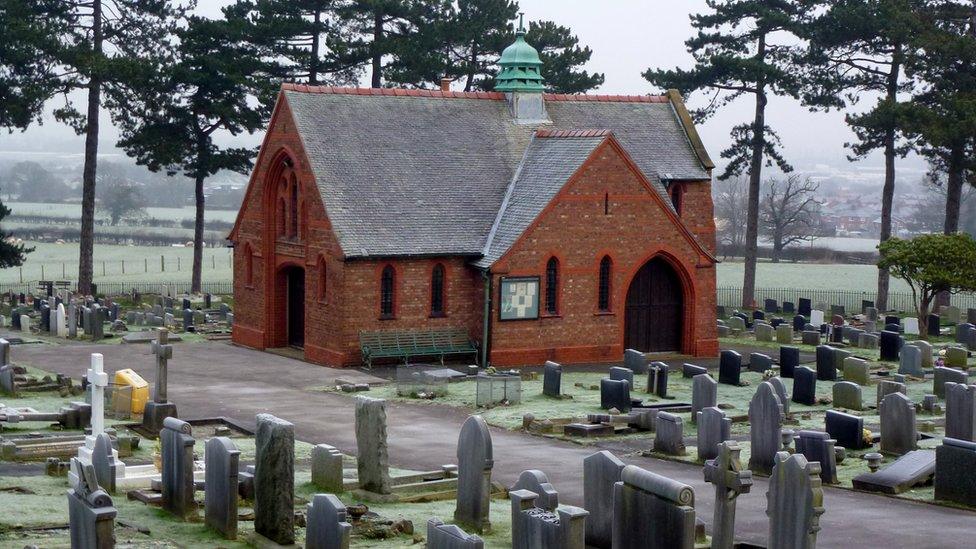Graves reclaimed in Merthyr Tydfil as Welsh burial space reaches 'crisis'
- Published
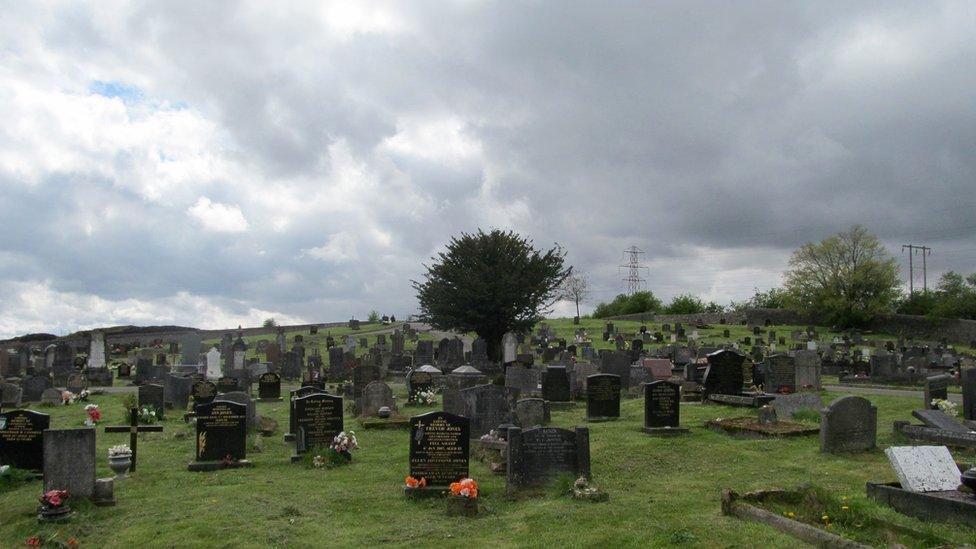
Pant Cemetery is one of Merthyr council's five burial grounds that are now full
The shortage of burial space in Wales has reached "crisis point" with one council reclaiming existing graves.
Of the councils that manage cemeteries with space and able to provide figures, Flintshire had the most, 5,189, and Conwy had the least, 918.
Merthyr Tydfil council said it had run out of new spaces and only reclaimed graves were available.
Two-thirds of the Church in Wales' 1,200 graveyards are full and they say the situation is at "crisis point".
Graveyards in Wales are managed by either local authorities, churches or community councils.
Merthyr said only graves that met "strict criteria" were considered for reclaiming.
The grave must have never had a memorial and there must have been only one burial which took place more than 70 years ago, a spokesman said.
Once a grave is selected, up to two coffins are placed above the original burial.
It added the existing remains were not disturbed during excavation, "only the remaining space above."
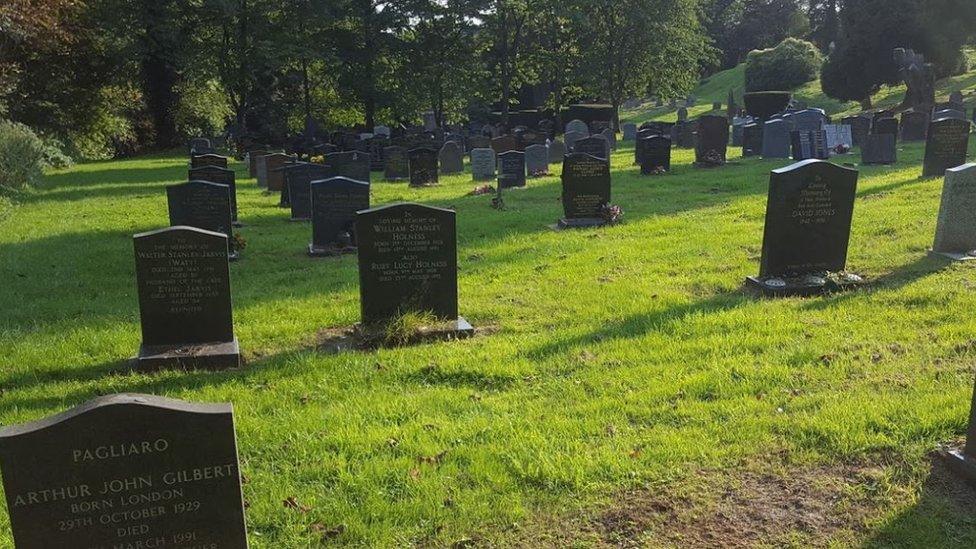
Monmouth cemetery, run by Monmouthshire council, is full
He said the authority was waiting on approval for between 200 and 300 spaces which would be available this year.
Reclaiming and reusing a burial plot are different approaches.
In reusing, the original remains are dug up and the grave deepened before the remains are reburied in the same grave, only deeper. This leaves the top of the grave free to use again.
This is currently against the law as buried human remains may not be disturbed without specific authority, external and a licence from the secretary of state or the church.
None of the local authorities in Wales have yet been granted a licence.
The Institute of Cemeteries and Crematoria Management (ICCM) has advised that all graves should be reused and recommends what it calls a "lift and deepen approach".
It depends on the family having no objection and the deceased having been buried for at least 75 years.
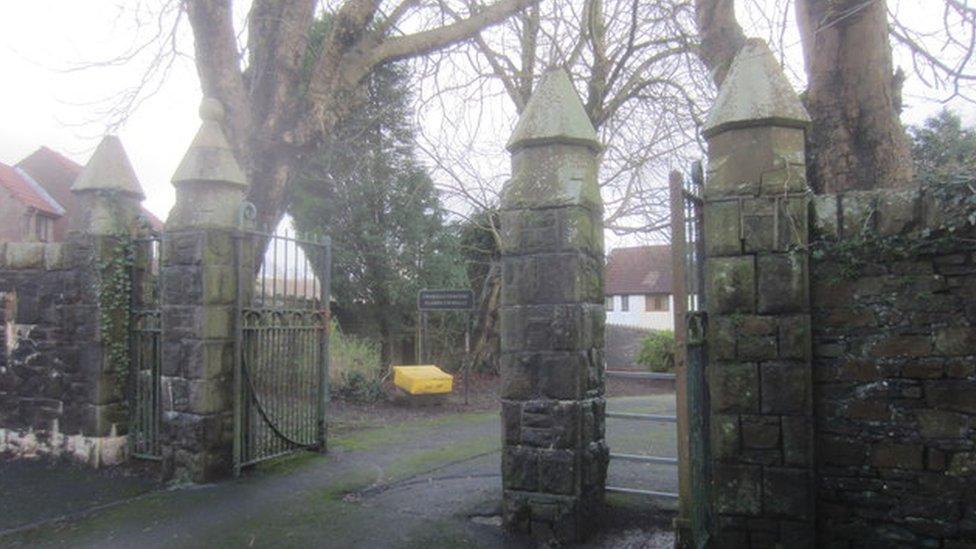
Cwmgelli Cemetery in Morriston, Swansea, has no burial spaces remaining
"The reburial needs to happen with sensitivity and obviously where the topography permits it", said Julie Dunk, ICCM chief executive.
"But I think we're running out of options and the time has come to have some difficult conversations about where we go from here."
The Church in Wales said the situation was "unsustainable" it was not opposed to re-using graves if it is done in a sensitive manner.
Lyn Cadwalader, chief executive of the organisation that represents community councils, said some members had expressed concern over the number of spaces available.
One Voice Wales is considering asking members what they think about reusing graves.
In a statement, the UK government said: "We are currently considering whether action is required in order to address the limited burial spaces in some areas.
"This is a sensitive issue and any changes in this area would need careful consideration."
A freedom of information request submitted by BBC Wales News also found big variations in burial spaces available between counties.
A snapshot of council-managed burial spaces available across Wales
Based on most up to date figures provided by local authorities
Vale of Glamorgan and Anglesey councils said they did not run any burial sites and Caerphilly does not hold information on burial site numbers.
Blaenau Gwent: 1,440 across all council-managed cemeteries
Bridgend: 4,015 across all council-managed cemeteries
Cardiff: 5,040 across three cemeteries
Carmarthenshire: Spaces for 10 years across all council-managed cemeteries
Ceredigion: 3,414 across five cemeteries
Conwy: 918 across all council-managed cemeteries
Denbighshire: About 1,900 across seven cemeteries or spaces for 35 years
Flintshire: 5,189 across all council-managed cemeteries
Gwynedd: 2,600 across 16 cemeteries
Merthyr Tydfil: None
Monmouthshire: 2,655 across three cemeteries
Neath Port Talbot: 1,250 across all council-managed cemeteries
Newport: Spaces for up to 10 years across all council-managed cemeteries
Pembrokeshire: 4,722 across 11 cemeteries
Powys: 4,500 across all council-managed cemeteries
Rhondda Cynon Taf: The majority of cemeteries have capacity for the foreseeable future
Swansea: Cemeteries which are not full have spaces for between 24 and 60 years
Torfaen: 2,226 across all council-managed cemeteries
Wrexham: 1,200 across all council-managed cemeteries
- Published15 March 2018
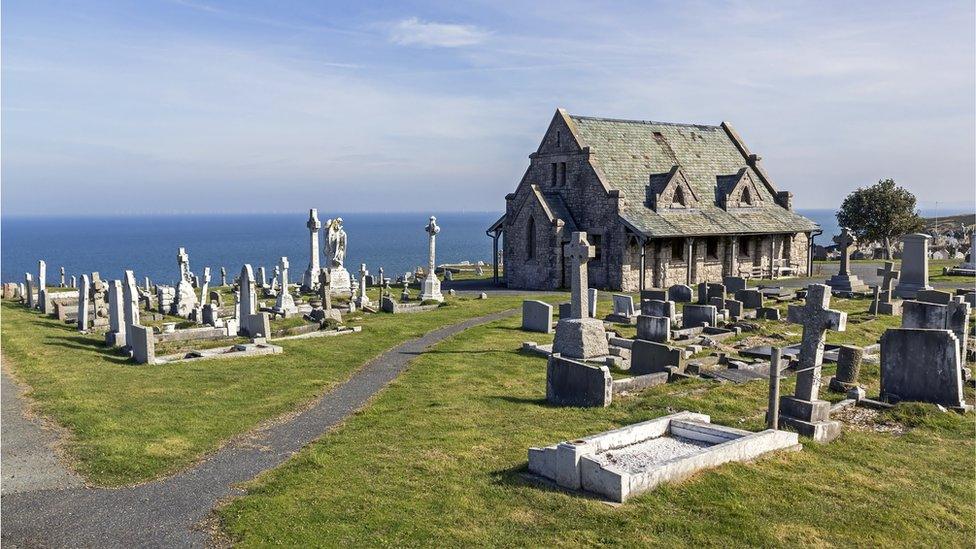
- Published16 October 2019
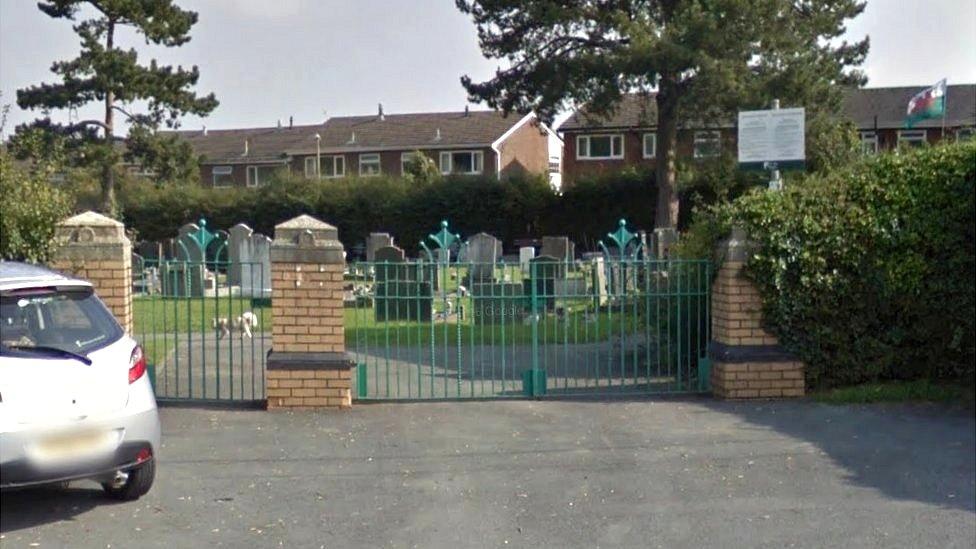
- Published19 September 2018
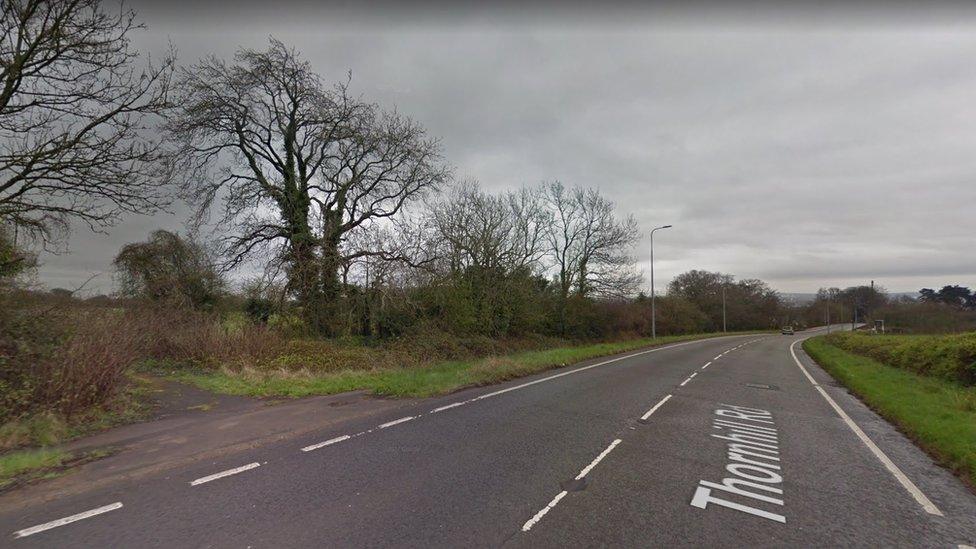
- Published11 October 2019
